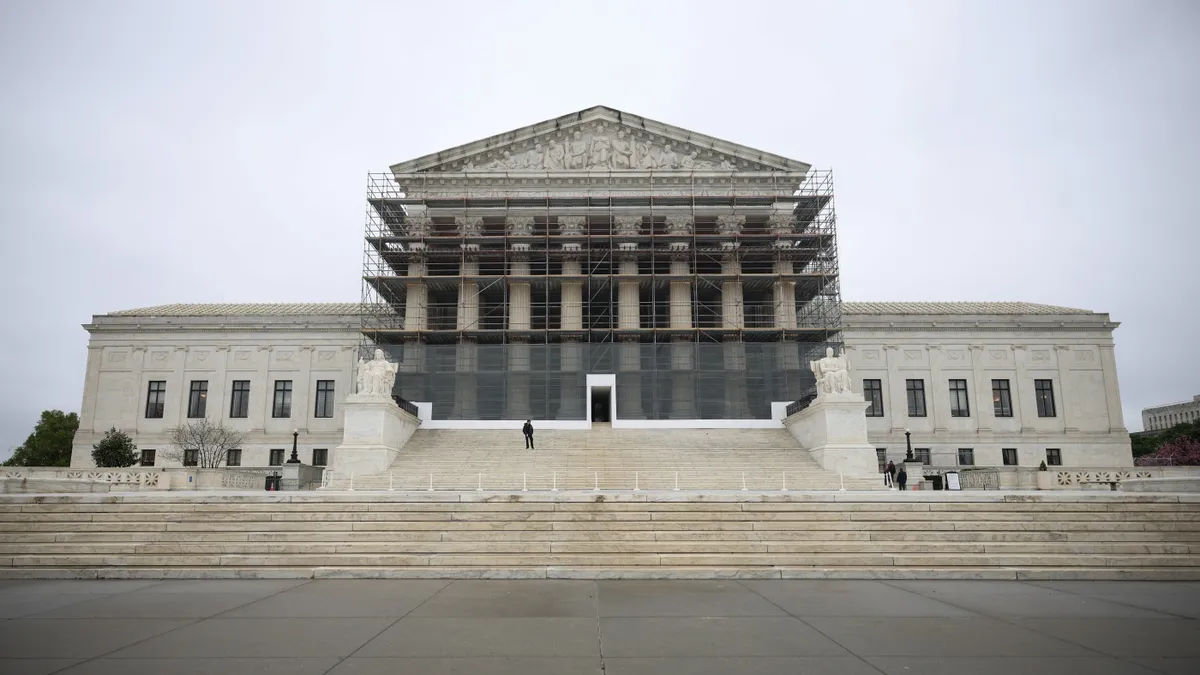
On Friday, the Supreme Court issued a pivotal 6-3 decision, aligning along ideological lines, to support the Trump administration's request to limit universal injunctions that have been issued by federal courts. This highly anticipated opinion pertains to the contentious birthright citizenship case, which addresses how lower courts should manage President Trump's executive order regarding citizenship for children born in the U.S. to parents who are in the country illegally or on temporary visas.
The majority opinion, authored by Justice Amy Coney Barrett, did not directly determine whether President Trump's executive order violates the 14th Amendment or the Nationality Act. Instead, the focus was on the authority of federal courts to issue nationwide injunctions. The conservative majority posited that universal injunctions likely exceed the equitable authority that Congress has granted federal courts.
The Court approved the government's applications for a partial stay of the lower court's injunctions, but stipulated that these injunctions should not be broader than necessary to provide complete relief to each plaintiff with standing to sue. This decision invites lower courts to reconsider their expansive rulings in light of the Supreme Court's guidance and principles of equity.
Notably, the Court's opinion specified that Trump's birthright citizenship order cannot take effect for 30 days following the decision, allowing additional time for potential legal challenges. The dissenting opinion came from the three liberal justices, with Justice Sonia Sotomayor stating that the government's urgency to limit nationwide injunctions undermines fundamental principles of equity and the historical context of injunctive relief granted to nonparties.
Immigrant rights groups, along with 22 states, had previously filed lawsuits against Trump's birthright citizenship order. Three different federal district court judges issued universal injunctions that barred the administration from enforcing Trump's policy nationwide. When the appeals courts declined to intervene during the ongoing litigation, the Trump administration escalated the matter to the Supreme Court in an attempt to block universal injunctions entirely.
While the decision on Friday was procedural, it touches on a broader issue: Trump's longstanding perspective that there is no entitlement to automatic citizenship for individuals born in the U.S. On his first day in office this year, he signed an executive order asserting that infants born in the U.S. would not automatically gain citizenship if their parents were undocumented or were in the country on temporary work visas.
This viewpoint is fundamentally in conflict with a Supreme Court ruling made 127 years ago, which has remained unchallenged. This ruling is grounded in the text of the Fourteenth Amendment, which asserts, “All persons born or naturalized in the United States, and subject to the jurisdiction thereof, are citizens of the United States.” Enacted in 1866 post-Civil War, the amendment was designed to overturn the infamous Dred Scott decision, which denied citizenship rights to Black people, whether enslaved or free. Historically, the amendment has consistently been applied to anyone born in the U.S., and the Supreme Court's ruling on Friday did not alter this longstanding interpretation.
In response to the Supreme Court's decision, President Trump expressed his satisfaction on Truth Social, declaring it a significant victory. He suggested that immigrants were attempting to exploit the system for U.S. citizenship and asserted that the 14th Amendment was originally intended to confer citizenship only to the children of enslaved individuals.
As this legal battle continues, the implications of the Supreme Court's decision on universal injunctions and birthright citizenship remain critical topics for ongoing discussion in the realms of immigration policy and constitutional law.